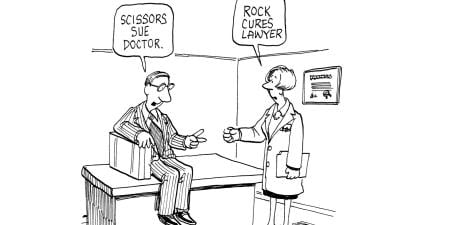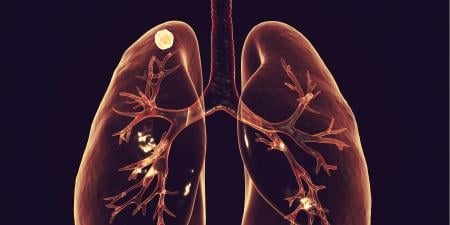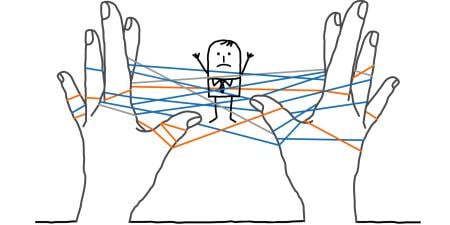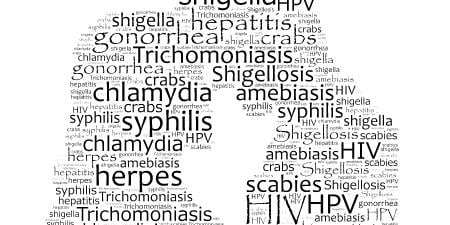Case
Dr. Lopez is a well-respected, board-certified academic behavioral neurologist who primarily treats patients with cognitive dysfunction and has a special interest in traumatic brain injury (TBI). On rare occasions she has served as an expert witness but, as a rule, does not testify against physicians in her community in malpractice cases. Now a plaintiff’s attorney, Mr. Sewell, has contacted her to engage her services in a case brought against a cross-country trucking company. One year ago the plaintiff, Ms. Dewey, was pulling out of a parking lot when her car was hit by a truck from the defendant’s fleet. She alleged a variety of injuries sustained as a result of the accident, including chronic headaches and residual cognitive dysfunction from a mild traumatic brain injury (TBI). The mild TBI category, which is the most prevalent type of TBI, includes concussions and other brain trauma that have initial symptoms such as loss of consciousness and/or “a state of being dazed, confused or disoriented” [1].
Mr. Sewell told Dr. Lopez that she would be given an opportunity to review the documents and would then be asked whether she could testify that it was more likely than not that the mild traumatic brain injury sustained during the motor vehicle accident was the proximate cause of Ms. Dewey’s cognitive dysfunction. Intrigued by the facts and interested in serving as an expert witness for a case not involving malpractice, Dr. Lopez agreed to review the documents once Mr. Sewell agreed to the terms of her fee schedule and she received her retainer fee for document review.
Upon reviewing the documents—including the plaintiff’s and defendant’s depositions; the police report from the accident; and Ms. Dewey’s medical records from the emergency medical services, the emergency center, and the treating neurologist—a number of facts struck Dr. Lopez as potentially problematic. In both the police report and the EMS documents, there was no mention of Ms. Dewey’s being confused or disoriented, and it was unclear whether she actually lost consciousness. The EC records were vague and contradictory, although the neurologist’s evaluation did seem to meet the standard of care. After her document review, Dr. Lopez remained interested in helping Ms. Dewey receive just compensation, but she also knew that, at some point, she would be asked to reveal that Ms. Dewey’s records did not definitively document a loss of consciousness, a fact that would likely put the severity of her injuries in question and possibly substantially undermine her claims to compensation. The evidentiary standard in civil litigation is “the preponderance of the evidence,” which essentially requires 51 percent certainty that the facts are as the plaintiff claims them to be [2]. Dr. Lopez is undecided about whether she believes the evidence meets this evidentiary threshold.
Accordingly, Dr. Lopez is faced with deciding whether to continue to work on Ms. Dewey’s behalf in the role of expert witness or to decline further engagement with her case. She wonders whether she has an obligation to tell Ms. Dewey’s attorney about her impressions of the records she reviewed.
Commentary
The ethical principles that guide clinicians in their relationships with patients continue to guide them when they assume the mantle of medical expert witness, but with a nonclinical twist. Physicians in the role of medical expert witness must consider a number of ethical appeals to reach an ethically justifiable course of action. These appeals can be divided into the following broad categories: (1) consequences for the parties concerned; (2) established legal, ethical, and professional standards; (3) respect for the rights of all parties; (4) professional virtues; and (5) fiduciary duties and special professional obligations, such as beneficence and nonmaleficence [3]. If Dr. Lopez were to analyze her ethical dilemma through the lens of each of these appeals, she would be able to determine an ethically compelling way to act.
Bioethical Appeals
Appeal to consequences. Offering testimony in a case based on the theory that the plaintiff suffered a mild TBI—when, on the expert’s assessment, the medical facts call that theory into serious doubt—may have far-reaching and irreversible consequences for all the parties to the litigation.
Providing less than honest testimony could ultimately undermine the case. Dr. Lopez must consider whether the plaintiff would be dragged into prolonged and unsuccessful litigation that burns both financial and emotional resources. Choosing not to litigate an unsubstantiated case saves time and emotional energy and considers the financial resources of all parties involved, including the plaintiff.
If she provided dishonest testimony, Dr. Lopez could also be subject to sanction by the state medical board and any professional societies of which she may be a member. The AMA Code of Ethics also calls on medical professional societies and state licensing boards to sanction those who give false or misleading testimony [4]. Thus, to do so could lead to disciplinary sanctions for Dr. Lopez from professional organizations and state medical boards [5].
Dr. Lopez could also be at risk of a lawsuit by the defendant for providing misleading testimonyShe could also be subject to sanction by the court or at risk of a lawsuit by the defendant for providing misleading testimony. As RJ Kohlman notes, “The concept of medicolegal malpractice liability has been recognized by courts; this means an expert hired to testify for a lawyer in medical litigation can become the target of litigation arising from this activity” [6]. Dr. Lopez has a legal obligation to the party she is aiding and to the legal process to ensure that her testimony does not perpetuate falsehoods.
Dr. Lopez could also certainly suffer serious consequences if she failed to follow the legal requirement that expert witnesses give honest testimony. Information on state and federal legal standards follows.
In response to the need for physicians to proffer expert testimony in medical malpractice cases, a majority of states promulgated legislation “to reduce fraudulent, misleading, or deceptive testimony of expert witnesses in medical malpractice cases” [7]. The fundamental requirements are that the expert witness actually possess relevant expertise and that the testimony be honest. For example, Florida’s expert witness statute requires that physicians have expertise in the same field as the injury at issue [8]. Hence, an orthopedic surgeon could not opine on an obstetric issue. Since Dr. Lopez’s specialty is neurology, and she holds a valid license, she could present expert testimony in this case that involves neurologic injury.
Furthermore, there are federal legal requirements that expert testimony be honest. Federal Rule of Evidence (FRE) 702 offers important direction because it governs the qualifications and testimony of an expert witness in federal court. Specifically,
A witness who is qualified as an expert by knowledge, skill, experience, training, or education may testify in the form of an opinion or otherwise if:
- (a) the expert’s scientific, technical, or other specialized knowledge will help the trier of fact to understand the evidence or to determine a fact in issue;
- (b) the testimony is based on sufficient facts or data;
- (c) the testimony is the product of reliable principles and methods; and
- (d) the expert has reliably applied the principles and methods to the facts of the case [9].
Dr. Lopez would be breaking the latter three parts of this rule if she testified in a way that did not accord with her expert understanding of the medical facts.
In 1993, the United States Supreme Court issued a landmark opinion that established standards for expert testimony. Daubert v. Merrell Dow Pharmaceuticals, Inc. requires a “reliability of proof” and relevance [10]. These notions, along with the “Daubert Test” were upheld in Kuhmo Tire Company, Ltd. v. Carmichael [11]. According to this standard, commonly referred to as “the Daubert test,” four factors must be considered when evaluating expert testimony, whether technical or scientific in nature. The four factors include:
- Whether a “theory or technique…can be (and has been) tested”;
- Whether the theory or technique “has been subjected to peer review and publication”;
- Whether, in respect to a particular technique, there is a high “known or potential rate of error” and whether there are “standards controlling the technique’s operation”; and
- Whether the theory or technique enjoys “general acceptance” within a “relevant scientific community” [12].
The Daubert test’s four factors are required by the United States Supreme Court and all other federal courts in all expert testimony. Failure to meet the requisite standards may render a physician ineligible to testify. Dr. Lopez needs to be cognizant of her legally required duty to discuss and disclose the unfavorable findings from the police report and emergency medical services.
Appeal to respect for the rights of all parties. In the clinic, physicians demonstrate respect for their patients’ right to self-determination by allowing those patients with intact decision-making capacity to choose whether to accept the risks and benefits of a medical intervention. In the medicolegal context, respect for rights entails presenting the medical facts as accurately as possible to allow the litigants to make decisions that best advance their individual interests. Respect for rights also entails respecting each litigant’s right to a fair trial.
According to this appeal, if Dr. Lopez has any reservations about the theory of the case—whether the plaintiff suffered a mild TBI—and believes the evidence does not support the plaintiff’s story, she must discuss it with the plaintiff’s legal counsel. By being forthcoming with this information, Dr. Lopez allows the attorney to create, if possible, a stronger case that is less vulnerable to the opposing expert’s rebuttal testimony or to decide that the case is no longer worth pursuing.
Appeal to virtues. “Virtues” are attitudes, dispositions, or character traits that enable us to be and to act in ways that develop our potential as human beings. Edmund Pellegrino considers the following virtues as the mark of a good physician: fidelity to trust and promise, benevolence, effacement of self-interest, compassion and caring, intellectual honesty, justice, and prudence [13]. These virtues should guide Dr. Lopez’s actions as an expert witness just as they guide her actions as a clinician, since it is her clinical expertise and her standing as a medical professional that allow her to offer an expert opinion in this case.
Appeal to fiduciary duties. Physicians and attorneys alike have a fiduciary duty to the parties they serve. This duty requires the professional to prioritize the interests of the patient or client above all else. In medical ethics, the concepts of beneficence and nonmaleficence (promoting the patient’s best interest and avoiding harm to the patient) are part of fulfilling the relevant fiduciary duty. Beneficence requires maximizing good to the patient, and nonmaleficence requires minimizing harm. Because medical interventions have both risks and benefits, beneficence and nonmaleficence must be balanced. In the context of providing expert medical testimony, although the decisions under review are not medical interventions but rather legal testimony, the duty is the same: it may either benefit or harm a litigant. Acting out of self-interest (e.g., to obtain financial remuneration) may have negative consequences for the patient. If Dr. Lopez is not convinced that the preponderance of the evidence supports the theory that the plaintiff suffered a TBI, the entire basis of the testimony is called into question. Lending her medical expertise under such circumstances benefits no one and harms the plaintiff, the plaintiff’s counsel, the legal system, and Dr. Lopez herself because all parties could be sanctioned, the judge could dismiss the case with prejudice (i.e., the inability to refile the case), and the requisite parties could be reported to professional licensing boards.
Appeals to professional guidance. An important source of information for ethical analysis is the guidance that established professional and legal standards may offer. Professional medical organizations have promulgated ethical standards for member physicians serving as medical expert witnesses. The American Medical Association (AMA), which established the Code of Medical Ethics nearly 165 years ago [14], is an excellent starting point for professional guidance. The AMA Code of Medical Ethics Opinion 9.07 expressly states that physicians who serve as expert witnesses must deliver honest testimony grounded in “recent and substantive experience or knowledge in the area in which they testify, and be committed to evaluating cases objectively and to providing an independent opinion.” The proffered opinions should be based on generally accepted scientific theories or, if the theory is “not widely accepted in the profession, the witness should characterize the theory as such” [6]. The opinion also states that physicians cannot let financial concerns drive the nature of testimony, and it calls on medical professional societies and state licensing board to sanction those who give false or misleading testimony.
A number of medical specialty societies have issued their own standards for expert testimony that are in line with those of the AMA Code of Medical Ethics. For example, the American College of Physicians (ACP) recognizes that “[p]hysicians, as members of society and as professionals, have a duty to testify in court as expert witnesses” and thereby participate “in the administration of justice” [15], and it has set forth recommended qualifications and general guidelines. These guidelines require that experts actually have the expertise they allege to have and require them to testify honestly about their credentials and about the medical facts of the case. Similarly, the American Academy of Neurology’s “Qualifications and Guidelines for the Physician Expert Witness” [16] requires the physician expert witness to have adequate qualifications (e.g., education, training, and experience) and to provide honest, accurate testimony grounded in evidence. According to the American Academy of Pediatrics guidelines, “the pivotal factor in the medical tort process is the integrity of the expert witness testimony. It should be reliable, objective, and accurate and provide a truthful analysis of the standard of care” [17]. In Dr. Lopez’s case, she is a qualified expert and has doubts about the evidence.
Conclusion
All the ethical appeals and guidance from authoritative sources point to one conclusion: Dr. Lopez, whose qualifications meet both professional and legal requirements, must analyze the case for all points of vulnerability and report her conclusions honestly. She should continue working as an expert witness if she concludes the facts support the theory of the case within the requirements of the evidentiary standard. However, if she does not believe that the preponderance of the evidence shows the plaintiff suffered a mild TBI, she is ethically and legally obligated to educate the plaintiff’s counsel about the weaknesses of the case and decline further engagement. To do so would manifest professional virtue, accord professional guidelines, and respect her fiduciary duty to the plaintiff and the rights of all parties. Although Dr. Lopez might feel sympathetic to a vulnerable plaintiff and the plaintiff’s interest in compensation, she must not allow this sympathy for the plaintiff’s plight to obscure the fact that even a vulnerable plaintiff does not have a right to untruthful testimony.
References
-
Mayo Clinic. Traumatic brain injury. http://www.mayoclinic.org/diseases-conditions/traumatic-brain-injury/basics/symptoms/con-20029302. Accessed January 31, 2016.
-
Congressional Record. Vol. 149, pt. 4: February 25, 2003 to March 10, 2003. Washington, DC: Government Printing Office; 2006:4542.
-
Bennett-Woods D. Ethics at a glance. Regis University. 2005. http://rhchp.regis.edu/hce/ethicsataglance/ethicsataglance.pdf. Accessed February 3, 2016.
-
American Medical Association. Opinion 9.07 Medical testimony. Code of Medical Ethics. http://www.ama-assn.org/ama/pub/physician-resources/medical-ethics/code-medical-ethics/opinion907.page. Accessed January 13, 2016.
- Bal BS. The expert witness in medical malpractice litigation. Clin Orthop Relat Res. 2009;467(2):383-391.
-
Bal, 383.
-
Jordan CM. States enact expert witness legislation for medical injury actions. Litigation News. October 19, 2011. https://apps.americanbar.org/litigation/litigationnews/top_stories/101911-medical-malpractice-expert-witness-florida.html. Accessed February 3, 2016.
-
Fla Stat sec 766.102.
-
Testimony by Expert Witnesses, Fed R Evid 702 (2011). https://www.law.cornell.edu/rules/fre/rule_702. Accessed February 4, 2016.
-
Daubert v. Merrell Dow Pharmaceuticals, 509 US 579 (1993).
-
Dennis KM. Kuhmo Tire and the admissibility of expert testimony. US Department of Justice. Updated May 7, 2015. http://www.justice.gov/ust/kuhmo-tire-and-admissibility-expert-testimony. Accessed February 3, 2015.
-
Daubert v Merrell Dow, 588-594.
-
Pellegrino ED. The Philosophy of Medicine Reborn: A Pellegrino Reader. Engelhardt HT, Jotterand F, eds. Notre Dame, IN: University of Notre Dame Press; 2008:12.
-
American Medical Association. Council on Ethical and Judicial Affairs. http://www.ama-assn.org/ama/pub/about-ama/our-people/ama-councils/council-ethical-judicial-affairs.page. Accessed November 16, 2015.
-
American College of Physicians. Position paper: guidelines for the physician expert witness. Ann Intern Med. 1990;113(10):789.
- Williams MA, Mackin GA, Beresford HR, et al. Qualifications and guidelines for the physician expert witness. Neurology. 2006;66(1):13-14.
-
American Academy of Pediatrics Committee on Medical Liability. Guidelines for expert witness testimony in medical malpractice litigation. Pediatrics. 2002;109(5):976.



